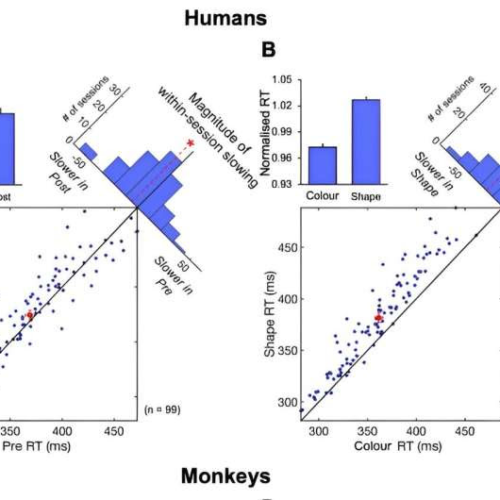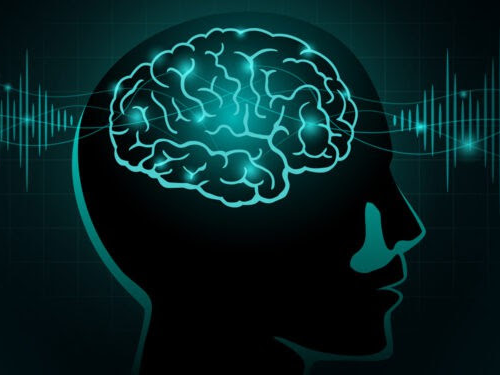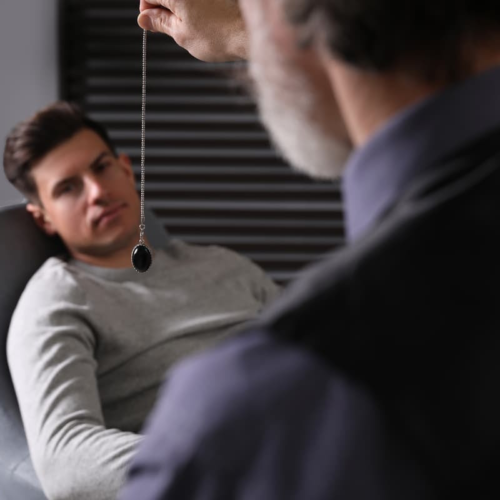APRIL 7TH, 2025POSTED BY DARYL LOVELL-SYRACUSE (Credit: Getty Images) SHARE THIS ARTICLE You are free to share this article under the Attribution 4.0 International license. TAGS UNIVERSITY SYRACUSE UNIVERSITY A painless and non-invasive pulse of electrical stimulation to specific brain areas can ease some symptoms of post-stroke patients, though how it works remains a physiological mystery. A pilot...
Tag: <span>brain stimulation</span>
Our Brain Loves Bubbles: CO2 Stimulates All Five Senses
In a video published on the Pasteur Institute website on January 2, neuroscientist Gabriel Lepousez, from the Perception and Memory Unit, explores the question: “Why does our brain love bubbles?” Lepousez studied olfactory sensory perception and its health implications, particularly mental health and body-brain communication. While he does not focus exclusively on CO2, he acknowledges its role...
Brain stimulation did not improve impaired motor skills after stroke: Clinical trial
by American Heart Association Credit: Rice University Mild electrical brain stimulation did not further improve motor recovery in stroke survivors, according to late-breaking science presented at the American Stroke Association’s International Stroke Conference 2025, held in Los Angeles, Feb. 5–7, 2025. “The results are somewhat surprising to us,” said study leading-principal investigator Wayne Feng, M.D., M.S., professor...
DGIST develops technology to stimulate the brain with an ultra-small coil
Peer-Reviewed Publication DGIST (Daegu Gyeongbuk Institute of Science and Technology) □ DGIST(President Kunwoo Lee) announced that a research team led by Prof. Kim So-hee from the Department of Robotics and Mechanical Electronics has developed a technology that enables precise brain stimulation using a coil small enough to be implanted in the body. It is expected...
DIY Brain Stim Is Growing in Popularity, but Is It Safe, Effective?
As at-home, do-it-yourself (DIY) brain stimulation devices like transcranial direct current stimulation (tDCS) gain popularity for common psychiatric conditions like depression, anxiety, and posttraumatic stress disorder (PTSD), questions arise about their safety and efficacy. However, the US Food and Drug Administration (FDA) has yet to “fully” clear any of these devices and has only granted breakthrough device designation...
Deep brain stimulation shows immediate improvement in arm and hand function post-brain injury, study finds
October 1, 2024 by University of Pittsburgh Deep brain stimulation may provide immediate improvement in arm and hand strength and function weakened by traumatic brain injury or stroke, University of Pittsburgh School of Medicine researchers report today in Nature Communications. Encouraging results from extensive tests in monkeys and humans open a path for a new...
Magnetoelectric nanodiscs offer remote brain stimulation without implants or genetic modification
Magnetoelectric nanodiscs for neuromodulation. Credit: Ye Ji Kim et al Novel magnetic nanodiscs could provide a much less invasive way of stimulating parts of the brain, paving the way for stimulation therapies without implants or genetic modification, MIT researchers report. The scientists envision that the tiny discs, which are about 250 nanometers across (about 1/500...
Study reveals how, when and where non-invasive brain stimulation influences neuronal activity and cognition
September 12, 2024 by Monash University Overall response time modulations in humans and in monkeys. Credit: Brain (2024). DOI: 10.1093/brain/awae273Brain stimulation using electrodes placed on the head has a great potential to be used in clinical practice to treat depression, anxiety and even addiction. Yet despite its widespread use in clinics and online availability for...
Home-based brain stimulation ineffective for major depression, study finds
by Eric W. Dolan Enhance your understanding of the human mind and mental health trends. Click here to follow PsyPost on LinkedIn.A recent study found that unsupervised home-use brain stimulation combined with digital psychological interventions was not more effective than placebo treatments in alleviating symptoms of major depression. This finding challenges the current understanding of...
Brain stimulation can make you easier to hypnotize
By Rich Haridy For the first time researchers have found a way to enhance a person’s susceptibility to hypnosis Depositphotos A person’s susceptibility to hypnosis has long been considered a pretty static trait. You may be highly hypnotizable, or you may be part of the nearly 25% of people who can’t really be hypnotized at all....



